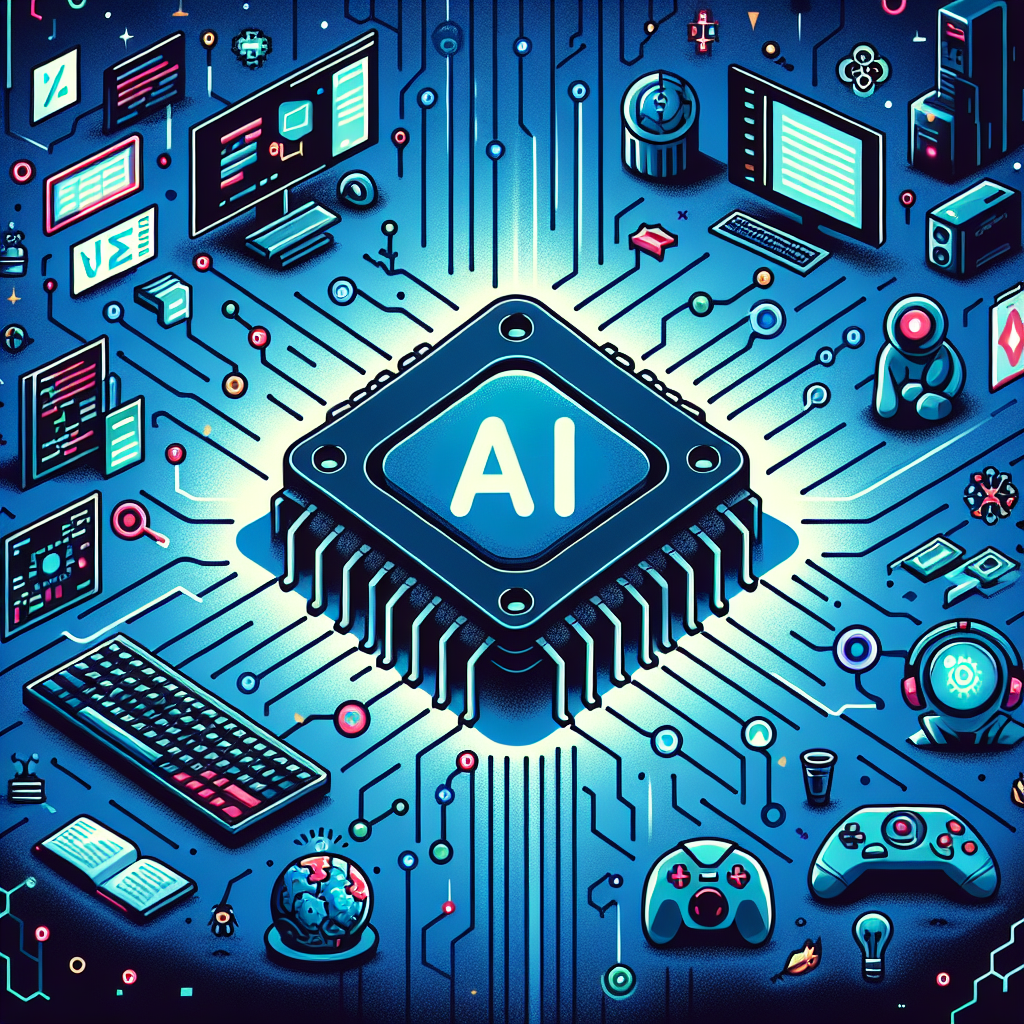In recent years, machine learning has become an increasingly important tool in the world of game development. From improving game AI to enhancing player experiences, machine learning has had a significant impact on the way games are created and played. In this article, we will explore the various ways in which machine learning is transforming the game development industry and discuss some frequently asked questions about the topic.
One of the most significant impacts of machine learning on game development is in the area of artificial intelligence (AI). AI is crucial in creating realistic and challenging opponents for players to compete against in games. Traditionally, game developers would have to code specific behaviors and reactions for each AI character in a game, which could be time-consuming and limited in its complexity. With machine learning, developers can now use algorithms that allow AI characters to learn and adapt to player behavior in real-time, creating a more dynamic and engaging gaming experience.
Machine learning is also being used to improve game design and level creation. By analyzing player data and feedback, developers can use machine learning algorithms to generate new levels, characters, or game mechanics that are tailored to the preferences of the players. This can lead to more personalized and enjoyable gaming experiences, as well as reduce the amount of time and resources needed to create new content for games.
Another area where machine learning is making a big impact in game development is in player analytics. By analyzing player data, developers can gain insights into player behavior, preferences, and habits, which can help them make more informed decisions about game design, marketing strategies, and monetization models. Machine learning algorithms can also be used to predict player actions and outcomes, allowing developers to create more engaging and challenging gameplay experiences.
Furthermore, machine learning is being used to enhance graphics and visual effects in games. By using algorithms that can analyze and process images in real-time, developers can create more realistic and immersive environments for players to explore. This can lead to more visually stunning games that push the boundaries of what is possible in terms of graphics and visual effects.
In addition to these areas, machine learning is also being used in game testing and quality assurance. By automating the testing process and using machine learning algorithms to identify bugs and performance issues, developers can improve the overall quality of their games and ensure a smoother and more enjoyable gaming experience for players.
Overall, the impact of machine learning on game development is profound and far-reaching. From improving AI and game design to enhancing player experiences and graphics, machine learning is revolutionizing the way games are created and played. As the technology continues to advance, we can expect to see even more innovative and exciting developments in the world of game development.
FAQs:
1. How is machine learning used in game development?
Machine learning is used in game development to improve AI, game design, player analytics, graphics, and visual effects, as well as in game testing and quality assurance.
2. How does machine learning improve AI in games?
Machine learning algorithms allow AI characters to learn and adapt to player behavior in real-time, creating more dynamic and engaging gaming experiences.
3. How does machine learning enhance game design?
By analyzing player data and feedback, developers can use machine learning algorithms to generate new levels, characters, or game mechanics that are tailored to the preferences of the players.
4. What are some examples of machine learning in game development?
Examples of machine learning in game development include using algorithms to analyze player data, improve AI behavior, create personalized game content, enhance graphics and visual effects, and automate game testing.
5. How can game developers benefit from using machine learning?
Game developers can benefit from using machine learning by creating more engaging and challenging gameplay experiences, improving the quality of their games, and gaining insights into player behavior and preferences.
In conclusion, machine learning is transforming the game development industry in a variety of ways, from improving AI and game design to enhancing player experiences and graphics. As the technology continues to advance, we can expect to see even more innovative and exciting developments in the world of game development. By leveraging the power of machine learning, game developers can create more immersive, personalized, and engaging gaming experiences for players around the world.

